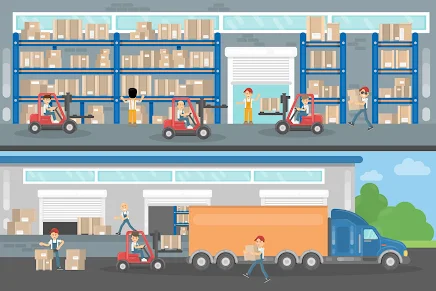The
act of receiving, packing, shipping, and delivering a product online to a
consumer is known as E-Commerce
Order Fulfillment. Processing of exchanges and refunds is
also covered by fulfilment procedure. When the contact between the company and
the client for the purchased goods is completed, the order has been fulfilled.
One of the most important order fulfilment criteria is the time it takes to
finish an order entirely, which is how orders are frequently evaluated.
Considering the order fulfilment plan is essential in this era where one-day
and two-day delivery models are dominating. To complete the order fulfilment
processes, a digital commerce company can either develop its own specialised
order fulfilment service or rely on a third-party fulfilment supplier.
E-commerce
fulfillment services is the area of your online store that
handles the tasks once an order is received. And if you don't want to deal with
shipping or if your business has expanded past your current warehouse capacity
to the point where you can no longer send things manually, employing a
fulfilment service is a terrific choice. Costs associated with e-commerce fulfilment
services include setup, intake and receiving, selecting and packaging, storage,
shipping, and management expenses. Depending on the kind of item, order
complexity, product size and weight, delivery speed, and sales volume,
fulfilment fees might vary each order.
The customer experience, brand perception, customer loyalty, revenues, and overall eCommerce growth all improve with better order fulfilment procedures. Choose the appropriate and cost-effective from all the top fulfilment companies from different types - merchant fulfilment, third-party fulfilment, and drop shipping. You may also think about doing a cost analysis test to find fulfilment methods that will work well for your company. Additionally, it's critical to comprehend the support the platform provides for order processing and fulfilment before selecting your eCommerce platform.









